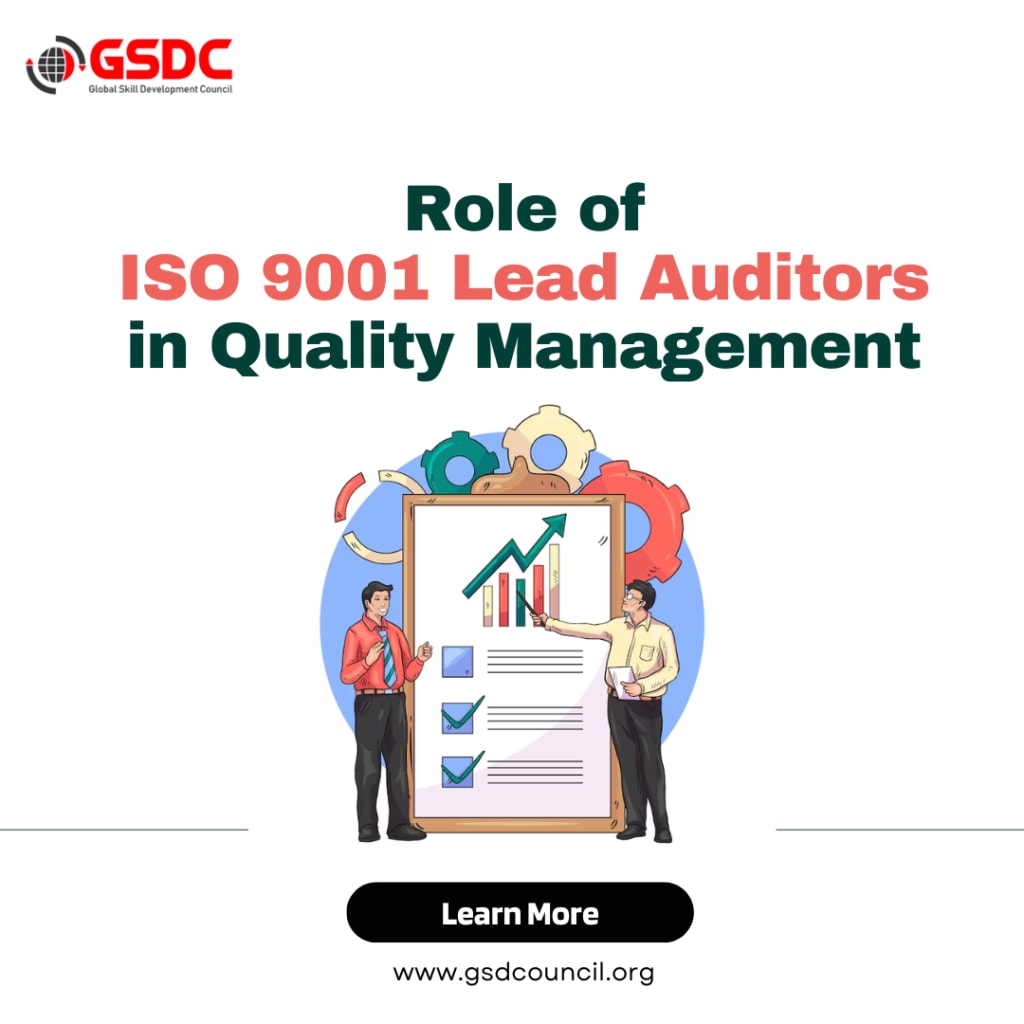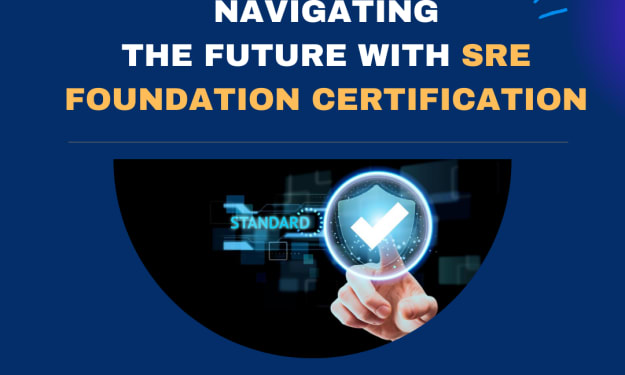Role of ISO 9001 Lead Auditors in Quality Management
The global recognition of ISO 9001 Lead Auditor certification enhances the mobility and marketability of professionals, enabling them to pursue opportunities on a global scale and contribute to organizations operating in different parts of the world.

Achieving ISO 9001 Lead Auditor Certification adds substantial value to organizations by promoting excellence, guaranteeing compliance, and encouraging continuous improvement in quality management practices. It also helps individuals by increasing career opportunities and improving their professional reputation. Becoming an ISO 9001 Lead Auditor involves several steps, including acquiring the necessary qualifications, gaining relevant experience, and obtaining certification.
ISO 9001 Lead Auditors play a crucial role in quality management by ensuring that an organization's quality management system (QMS) complies with the ISO 9001 standard. They are instrumental in driving continuous improvement and fostering a culture of quality within organizations. Here are the key roles and responsibilities of ISO 9001 Lead Auditors in quality management:
1. Conducting Audits
Internal Audits: Lead auditors perform internal audits to evaluate the effectiveness and compliance of the organization's QMS with ISO 9001 requirements. This involves planning the audit, conducting interviews, reviewing documents, and observing processes.
External Audits: Lead auditors may also conduct external audits, including supplier audits and certification audits, to assess compliance with ISO 9001 and other relevant standards.
2. Planning and Preparing for Audits
Audit Planning: They develop detailed audit plans, including the scope, objectives, criteria, and schedule. Effective planning ensures that the audit process is systematic and thorough.
Preparation: Lead auditors prepare by reviewing relevant documentation, understanding the organization's processes, and identifying key areas of focus.
3. Evaluating Quality Management Systems
Assessment: They assess the organization's QMS to ensure it meets the ISO 9001 standard. This includes evaluating processes, procedures, records, and controls.
Gap Analysis: Identifying gaps between the current QMS and ISO 9001 requirements, providing a basis for improvement actions.
4. Identifying Non-Conformities
Detection: Lead auditors identify non-conformities, which are deviations from ISO 9001 requirements or the organization's own procedures.
Classification: They classify non-conformities as minor or major based on their impact on the QMS.
5. Reporting and Documenting Findings
Audit Reports: Lead auditors prepare detailed audit reports that document their findings, including non-conformities, observations, and areas for improvement.
Communication: Communicating audit results to management and relevant stakeholders, providing clear and actionable feedback.
6. Recommending Corrective Actions
Suggestions: They recommend corrective actions to address non-conformities and improve the QMS.
Follow-Up: Conduct follow-up audits to verify the implementation and effectiveness of corrective actions.
7. Ensuring Compliance and Continual Improvement
Compliance: Ensuring that the organization complies with ISO 9001 requirements and any other relevant standards.
Improvement: Encouraging a culture of continual improvement by identifying opportunities to enhance processes and practices.
8. Training and Mentoring
Training: Providing training to staff on ISO 9001 requirements, quality management principles, and auditing techniques.
Mentorship: Mentoring junior auditors and quality professionals to build their skills and knowledge in quality management.
9. Maintaining Objectivity and Independence
Impartiality: Maintaining objectivity and impartiality during audits to ensure unbiased and accurate assessments.
Ethics: Adhering to ethical standards and professional conduct, ensuring the integrity of the audit process.
10. Staying Updated with Standards and Practices
Continuous Learning: Keeping up-to-date with changes in ISO 9001 standards, auditing practices, and industry trends.
Professional Development: Engaging in ongoing professional development to enhance their skills and knowledge.
11. Facilitating Risk Management
Risk Identification: Identifying risks associated with the organization's processes and evaluating their impact on quality.
Risk Mitigation: Recommending strategies to mitigate identified risks and enhance the robustness of the QMS.
12. Supporting Certification Processes
Leading the organization through certification audits conducted by external certification bodies. Conducting pre-certification audits to ensure readiness for formal certification assessments.
ISO 9001 Lead Auditors are pivotal in maintaining and improving the quality management systems of organizations. They ensure compliance with ISO 9001, promote continuous improvement, and help build a culture of quality, ultimately contributing to enhanced organizational performance and customer satisfaction.
About the Creator
Enjoyed the story? Support the Creator.
Subscribe for free to receive all their stories in your feed. You could also pledge your support or give them a one-off tip, letting them know you appreciate their work.





Comments (1)
Hey, just wanna let you know that this is more suitable to be posted in the 01 community 😊